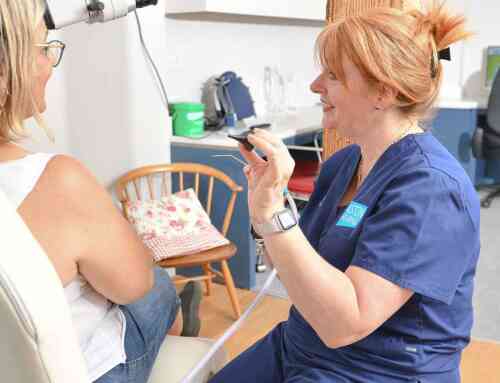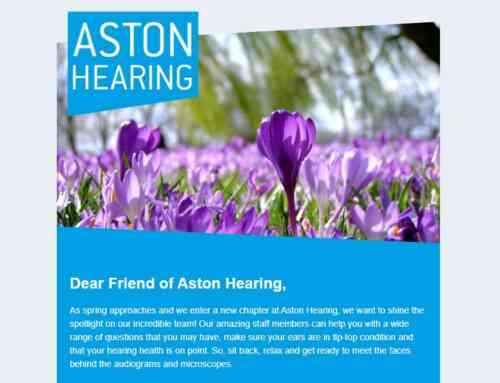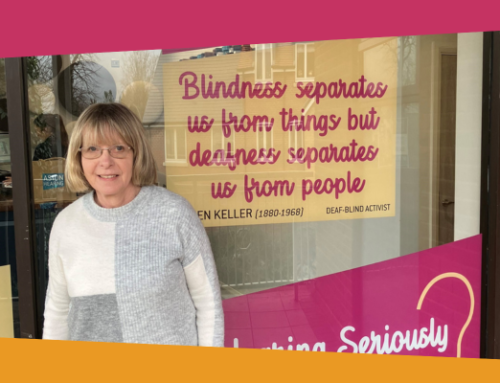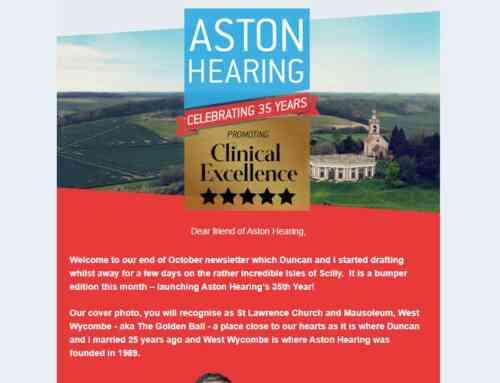The fact is as we age, so do our ears. We will all need to be hearing well for longer in order to stay employed, stay social and as part of good overall health. Approximately 11 million people in the UK are currently suffering from hearing loss which equates to roughly one in six of us. By 2035, it is estimated there will be around 15.6 million people with hearing loss across the UK – which is one in five. We need to start prioritising our hearing now.
WHAT ARE THE SIGNS OF AGE-RELATED HEARING LOSS?
- People often have to repeat things for you
- Experiencing difficulty understanding what is being said in noisy places
- Difficulty keeping up with group conversation
- Getting tired because of over concentration
- Being told your TV or music is too loud
- Having difficulty hearing on the telephone
HOW CAN UNTREATED HEARING LOSS AFFECT YOU?
With age-related hearing loss, the delicate hair cells of the inner ear are worn down, so they are not quite as effective as they used to be and need more volume to be stimulated, so you start to lose clarity.
Untreated hearing loss is now being routinely linked to several medical conditions including an increased risk of dementia, depression, falls and even strokes. Untreated hearing loss also leads to longer hospitalisations, readmissions and more visits to casualty. Fatigue is another factor that is not commonly discussed. The listening effort required with any degree of loss is considerable. We often hear from our clients that the effort of listening is physically exhausting.
WHAT’S THE BEST THING TO DO?
- Get your hearing tested – If you realised your sight wasn’t as good as it was previously, you would probably go to the optician. Shockingly, recent research has found that people generally wait 10 years before taking action against their hearing loss but the sooner you seek help, the less impact hearing loss will have on your life. Your hearing should be checked throughout your life increasing to every three years between the ages of 45-60, every two years if you are over 60 or sooner if you suspect any sort of hearing loss. Well-managed hearing loss will help keep you young.
- The best solution for moderate to severe hearing loss is hearing aids but they still sometimes carry the burden of huge social stigma and yet the truth is hearing technology is now extraordinary. We now have the ability to seamlessly stream phone calls, the TV and music straight to our hearing aid! Some even allow you to text, translate languages, monitor your activity and even measure your blood pressure! Hearing aids are no longer big and obvious bits of plastic that clasp over your ears; many of them are barely visible. Ultimately many more people could benefit from hearing aids than are currently doing so and we hope it won’t be long before attitudes start to change towards hearing technology.
- Excessive wax build-up can be a major problem for effective hearing. Microsuction is the safest method of wax removal and is highly recommended over ear irrigation and it is also unnecessary for the client to use any oil beforehand to loosen the wax. Wax removal is often no longer carried out by GP’s on the NHS.
ADVICE FOR GENERAL HEARING DIFFICULTIES
- If someone with hearing difficulties is struggling to understand you, be patient. Give them time to hear and to understand. It can be frustrating when you have to repeat things but someone with hearing issues is unlikely to be ignoring you, they just can’t hear you. Try not to fill in their sentences unless they are really struggling as it can really knock their confidence.
- Make sure you are in the same room when you are talking to someone with hearing difficulties and preferably in front of them for optimal hearing, possible lip reading, as well as body language to provide visual cues.
- When watching TV with someone who has hearing difficulties, try to turn the TV volume from quiet to loud rather than from loud to quiet as you are more likely to get an outcome that all the family can enjoy.
- Do your best to interact and empower those with hearing loss. For example, choose restaurants with good acoustics and encourage them to get their hearing tested.





